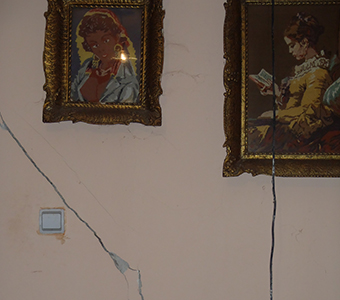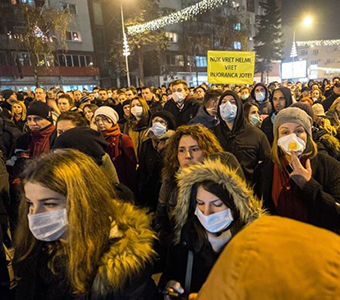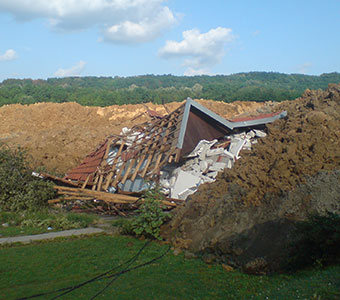
Strategic Area Leader - Beyond Fossil Fuels
Email: ioana.ciuta AT bankwatch.orgTel.: +4031 438 2489
loana joined Bankwatch in 2014 as energy coordinator for the Western Balkans, preventing new coal capacities from being built in the region, but also campaigning for improved air quality. Since taking on the current role, she has been leading campaigns to accelerate the transition to clean, sustainable energy in Central and Eastern Europe, the Western Balkans, and lately, Central Asia. She also serves as president of Bankwatch Romania and joins efforts against unsustainable hydropower development, while fighting to keep the space for civil society. With a background in journalism and over two decades of environmental activism, she works to bridge grassroots action with policy change for a just, fossil-free future.
More from Ioana Ciută
A ray of light for communities in Serbia’s coal heartland
July 22, 2016 | Read more
For more than 50 years, the lignite mines in Serbia’s Kolubara basin have been expanding, effectively engulfing the few small communities living between them. For local residents, whose homes have quite literally been teetering on the brink of the mines, life has become unbearable. But a recent court ruling might be paving the way to a long overdue reprieve for residents who have been promised to be relocated.
The possible cancellation of the Serbian government’s decision to construct a new 350 MW unit at the Kostolac B lignite power plant was discussed on June 23 at the national administrative court of Serbia.
While the Energy Community yesterday failed to consider more stringent air pollution rules for the Western Balkans, a new report quantifies the health costs of the region’s coal burning both within the region itself as well as in the neighbouring European Union.
European financial institutions and Serbian authorities have failed to address the human impacts of resettlement in Serbia’s lignite mining fields, a new study shows.
Bankwatch’s Romanian chapter has been granted access to environmental information included in a letter sent by Romania’s Ministry of Economy in support of a loan from the Euoprean Bank for Reconstruction and Development (EBRD) to Oltenia Energy Complex (OEC), Bucharest’s administrative court ruled yesterday. The letter will shed light on the nature and extent of the government’s support for the project, and whether it was in line with EU regulations.





